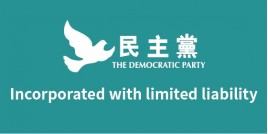A Hong Kong resident, Mr. Kwok Chun Sang, has been jailed for life in the Mainland for contract fraud in 2009 (the penalty was shortened to 18 years by the Higher People’s Court of Jilin Province in 2012 due to good behaviour and performance in prison). Legislator James To, from the Democratic Party, said the nature of the case was changed from civil to criminal and involved illegal trials and unreasonable judgments, and may violate "one country, two systems". He urged the Chief Executive to report the case to the central government, and asked the central government to act in strict accordance with the law, review and investigate the case thoroughly, in purpose to even the score for Hong Kong people.
James To's office received an assistance request from the Hong Kong resident Mr. Kwok. It is understood that Mr. Kwok was a director of a registered company (Victory (HK) Ltd.) in Hong Kong. In 1996, he signed a mortgage agreement with the China Merchants Bank (HK branch) in Hong Kong. Under the agreement, the 25% equity of another mainland company (Jilin Longhua Heat-Electric Power Co., Ltd) held by Victory (HK) Ltd. will be pledged to China Merchants Bank. According to the agreement, Victory (HK) Ltd. must repay the debts owed by China Merchants Bank during each interest-bearing period. Later, due to the failure of Victory (HK) Ltd. to perform the agreement for the repayment, Mr. Kwok was prosecuted by Changchun Intermediate People's Court in 2009, referred to him as a director of Victory (HK) Ltd., intended to conceal the share dividends of Jilin Longhua Heat-Electric Power Co., Ltd. Also, from July 1998 to 2002, the dividends that should belong to China Merchants Bank from Jilin Longhua Heat-Electric Power Co., Ltd, has been taken at the amount of more than 60 million CNY by Mr. Kwok. Afterward, Mr. Kwok filed an appeal and it was rejected. He has been serving a prison sentence for more than 10 years in the Mainland.
After understanding the case, James To believed that there were several unreasonable circumstances in the case:
1. The company involved is a Hong Kong company. The loan agreement is agreed to sign by two parties in a Hong Kong branch of mainland bank. Therefore, the agreement should be governed by the laws of Hong Kong. The company should also be protected by Hong Kong law. If there is any legal dispute, it should be based on Hong Kong law and tried by the Hong Kong courts; therefore, it is not appropriate to hear the case by the Mainland courts.
2. The Criminal Judgment of the Changchun Intermediate People's Court of Jilin Province (page 16) and the Criminal Proceedings of the Jilin Higher People's Court (page 3 and 4), have mentioned the Hong Kong Commercial Crime Bureau had provided relevant information to the Mainland police. However, the Commercial Crime Bureau of Hong Kong has not conducted a criminal investigation on Mr. Kwok in the case and has not arrested Mr. Kwok. It is obvious that the conduct is not a criminal case in Hong Kong.
3. The case is clearly a contract dispute, which is a civil case according to local laws; and the loan agreement is signed in the name of a limited company, and even if it involves legal action, it should not be held by personal responsibility. Therefore, if the case was controlled locally, it will only be a civil case against the company. However, Mr. Kwok was prosecuted in the Mainland and was eventually sentenced to life imprisonment. The treatment to him is obviously unreasonable and unlawful.
4. On the other hand, in 2011, China Merchants Bank filed a civil appeal to Jilin Longhua Heat-Electric Power Co., Ltd and demanded compensation for breach of contract. The Jilin Provincial Higher People's Court subsequently dismissed its appeal and ruled that China Merchants Bank will not raise 25% equity of the Mainland Company before May 21, 2000. With the actual pledge, the 25% equity dividend cannot be claimed in accordance with the law. This judgment can be used as a strong basis for overturning Mr. Kwok’s criminal conviction.
James To said Mr. Kwok as a Hong Kong businessman who has mortgaged a bank to invest in his business. The relevant contract was signed in Hong Kong under the name of a Hong Kong company. In the case of commercial legal disputes, it should be based on Hong Kong law for local civil litigation, but not in the Mainland and even impossible to conduct criminal prosecution against individuals.
James To pointed out that the incident reflected the ambiguous definition of commercial fraud and civil disputes in the Mainland courts. "A legitimate businessman who fails to perform contract repayment in Hong Kong is a civil offence. The main issue in the case is whether the Mainland company pays dividends to Hong Kong companies as part of collateral. But the same behavior can now become a criminal in mainland." He believes that the case justifies the Hong Kong people's concern about the Hong Kong Government’s proposal of amending the Fugitive Offenders Ordinance to allow Hong Kong to transfer fugitives to the Mainland. Under the current inability to extradite, Mr. Kwok was arrested and charged with criminal offences in the Mainland. Once the extradition is implemented, Hong Kong resident and other people coming to Hong Kong will be more worried about their own safety.
James To also pointed out that the incident even reflects a major problem of violation of the "one country, two systems". He warned that the case would seriously affect the confidence of investors, especially under the national policy of the “One Belt One Road” in the Mainland. Hong Kong, as an important arbitration centre, many foreign businessmen will choose to sign contract documents or conduct arbitration settlements in Hong Kong, because they believe in Hong Kong's legal system. Mr. Kwok's case will hurt the confidence of investors to invest in the Mainland. James To believes that both the SAR and the central government must seriously face up to the case, and requests the SAR government to reflect the issue to the central government. He hopes that the central government can act in accordance with the law, review and investigate the case thoroughly, so that Mr. Kwok can obtain a fair and impartial trial.
James To Kun-sun
Democratic Party Legislator




